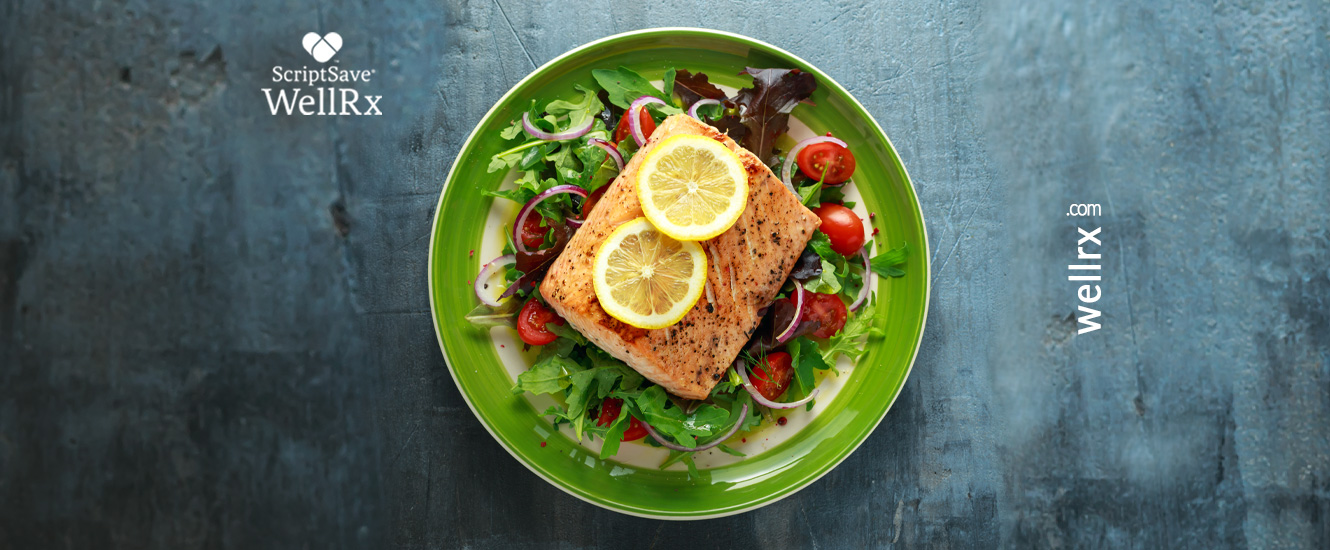Celebrate love this Valentine’s Day by showing your heart some love, too. Here’s what your heart would eat for dinner if this hard-working romance machine could set the menu.
How to Nourish Your Heart
To show your heart some nutritional love, the American Heart Association advises a diet that is rich in fruits, vegetables, whole grains, nuts, and legumes. You should also avoid exceeding your daily caloric requirement, which varies from person to person but is generally around 2,000 calories per day.
As you plan your Valentine’s Day menu, you’ll definitely want to avoid a few foods, lest you draw ire from the cardiac cupid:
- Red meat: Research has shown diets that heavily incorporate red meat may increase the levels of a chemical known as TMAO, which promotes the development of arterial plaque.
- Added sugar: Consuming 21 percent or more of your daily calories from added sugar more than doubles your risk of dying from cardiovascular disease.
- Highly refined grains: Ditch the white bread and pasta noodles. A recent study found that people who ate at least seven daily servings of highly refined grains had a 29 percent increased likelihood of dying or having a major cardiovascular event (like a heart attack, stroke, or heart failure) compared to those who had less than one serving per day.
- Sodium: If you or your valentine suffers from high blood pressure, also known as hypertension, you’ll want to limit your salt intake because added sodium can raise blood pressure.
Course One: Healthy Fat
For the first course of your Valentine’s Day dinner, consider serving food that is high in healthy unsaturated fats, also known as omega-3 fatty acids. These healthy fats can help reduce your risk of heart disease in a number of ways, including by preventing processes that lead to arterial blockages, reducing your blood pressure, and improving your cholesterol levels. Try an assortment of nuts or a tray of fancy olives drizzled with olive oil.
Course Two: It’s All About the Fiber
Studies have shown people who have diets that are high in fiber have a lower risk of developing and dying from cardiovascular disease. Scientists believe that fiber fights heart disease by improving cholesterol levels, reducing blood pressure, improving the action of the hormone insulin, and making it harder for blood clots to form. Treat your loved one (and your heart) to a generous salad, dressed with satiating healthy fats like avocado oil or pumpkin seeds.
Here’s what else should go in that salad:
- Leafy green vegetables: These, such as spinach and lettuce, have been inversely associated with heart disease.
- Cruciferous vegetables: Broccoli, Brussels sprouts, and cabbage have been linked to decreased heart disease.
- Allium vegetables: Onions, garlic, and leeks have heart-friendly flavanol compounds and selenium.
- Yellow-Orange-Red vegetables: Toss in some tomatoes, carrots, or sweet potatoes to provide a carotenoid.
- Legumes: Some studies have shown a connection between increased bean intake and decreased heart disease, so sprinkle on some kidney beans, lentils, or chickpeas.
Course Three: Lean Protein and a Whole Grain
If your heart could go to the market (or borrow your phone to order delivery), it would probably choose fish for the main course. Multiple studies have demonstrated that people who eat fatty fish a few times a week nearly halve their risk of dying from heart disease. This may be due to the abundance of heart-friendly omega-3’s found in fatty fish. Pair your salmon or trout with a whole grain, like farro or brown rice, to amplify your heart’s content.
Course Four: Time for Something Sweet?
It is Valentine’s Day, after all. Luckily, cardiovascular researchers seem to be in agreement about one beneficial sweet in particular—dark chocolate. This magical cacao derivative can positively affect blood pressure, cholesterol levels, and inflammation levels. Enjoy it in moderation, of course.
Is There Room for Wine?
If you are partial to a glass of red wine to enhance the ambiance, the research is in your favor. Particularly due to its component resveratrol, an antioxidant, red wine has been purported to help prevent heart disease. However, don’t down the whole bottle in one sitting; consuming too much alcohol can adversely affect your heart. The American Heart Association recommends limiting alcoholic beverages to one a day for women and two a day for men.
Whether you will be dining solo or sharing a meal with your valentine this February 14, use these tips to let your heart (and its health) be your ultimate culinary guide.
Libby Pellegrini is a nationally certified physician assistant. She has worked in numerous healthcare settings, including the rural United States, an inner-city Level I trauma center, several suburban acute care centers, and a boutique, personalized medicine clinic in Southeast Asia. She graduated Magna Cum Laude from Northwestern University’s Medill School of Journalism.
References:
https://www.heart.org/en/healthy-living/healthy-eating/eat-smart/nutrition-basics/aha-diet-and-lifestyle-recommendations
https://academic.oup.com/eurheartj/article/40/7/583/5232723?login=true
https://jamanetwork.com/journals/jamainternalmedicine/fullarticle/1819573
https://www.bmj.com/content/372/bmj.m4948
https://www.wellrx.com/health-conditions/about/health-condition/heart-attack/~default/
https://www.wellrx.com/health-conditions/about/health-condition/hypertension/~default/
https://www.ahajournals.org/doi/full/10.1161/CIRCULATIONAHA.114.015176
https://jamanetwork.com/journals/jamainternalmedicine/fullarticle/216689
https://www.ncbi.nlm.nih.gov/pmc/articles/PMC5986475/
https://www.ahajournals.org/doi/full/10.1161/CIRCULATIONAHA.114.015176
https://pubmed.ncbi.nlm.nih.gov/26456559/
https://pubmed.ncbi.nlm.nih.gov/28521683/
https://www.heart.org/en/news/2019/05/24/drinking-red-wine-for-heart-health-read-this-before-you-toast













 Store & manage your medication list
Store & manage your medication list Medication pricing updates
Medication pricing updates Pill & refill reminders
Pill & refill reminders Medication journal & mood log
Medication journal & mood log